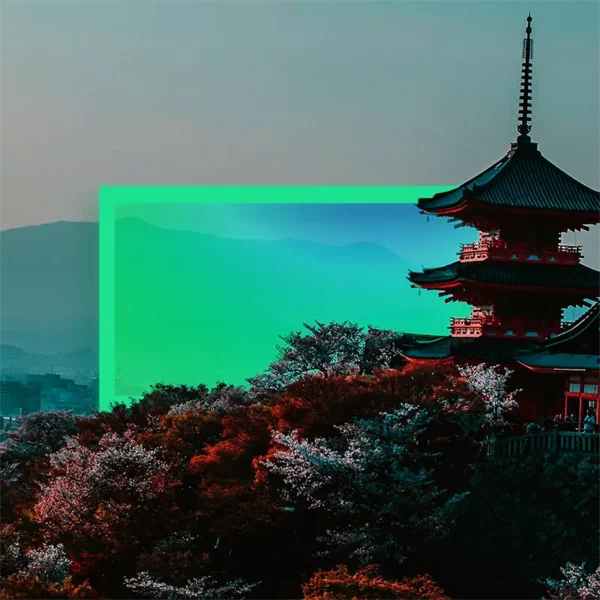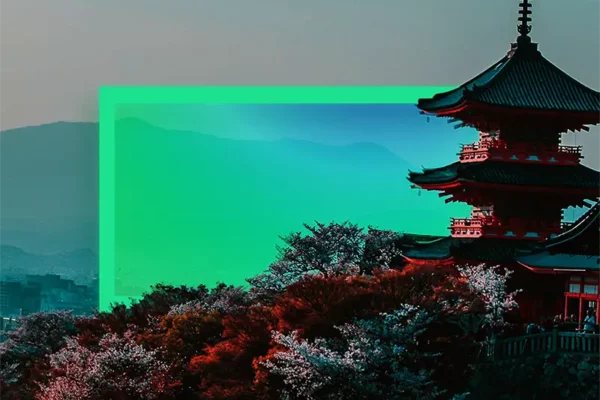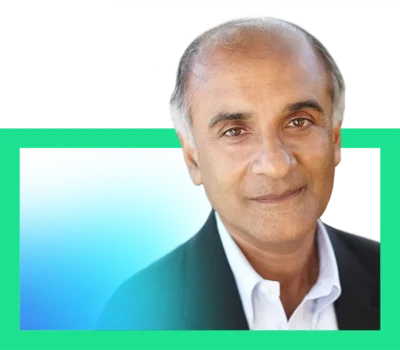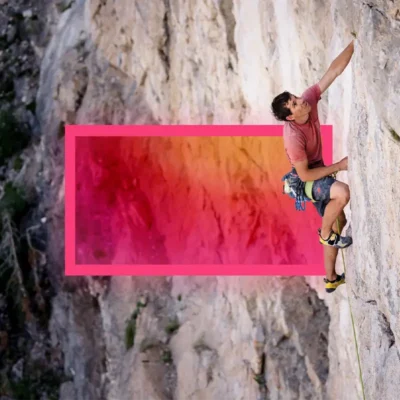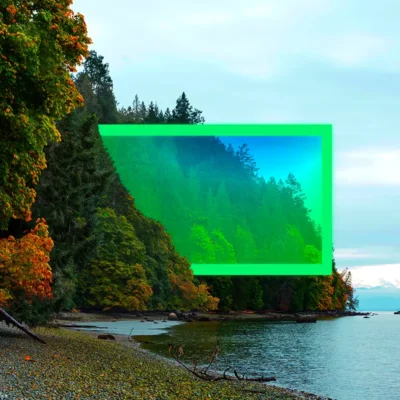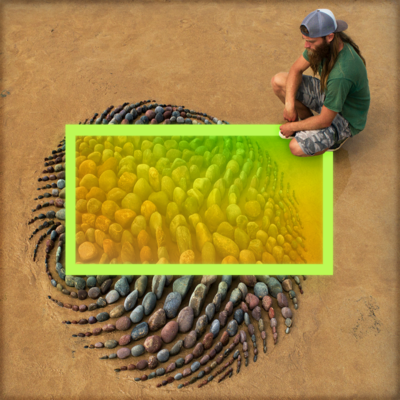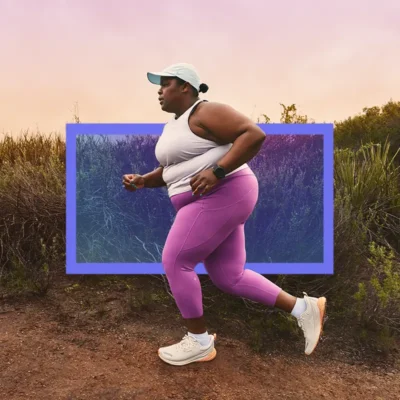PICO IYER: I couldn’t tell you why but I felt I knew the place. I knew it better than I knew the English road on which I’d been born, better than the apartment where I lived now on 20th Street. It was like a home that had been waiting for me forever.
ROHAN GUNATILLAKE: Thirty years ago, the travel writer Pico Iyer booked himself on a trip to Southeast Asia. It was a trip that would transform his life in ways he couldn’t have imagined. Visiting foreign places will often put our senses on high alert. In the story you’re about to hear, Pico reveals what can happen when we wander and allow the world to unfold around us.
In this series, we blend immersive, first-person stories with mindfulness prompts to help you recharge at any moment of the day. I’m Rohan, and I’ll be your guide for Meditative Story. At times while listening, you might find that your attention has drifted away. That’s ok. Just bring yourself back. Back to the sound of Pico’s voice.
The body relaxed. The body breathing. Your eyes open. Your senses open. Meeting the world.
IYER: It was my first day ever in Southeast Asia. The Japan Airlines jet touched down, and I stepped out into the hot, spiced air, and then into a tiny, very congested airport. The rainy season was thick, impending, and I could smell diesel fuel and perfume and what might have been incense.
As I walked out of the terminal, a small man ushered me towards a little minivan, and it rattled six of us through the night into Bangkok.
I was 26, and on a four-week holiday from my 25th floor office in Midtown Manhattan. I looked around me as the darkness fell and I saw lanterns shivering in barely-lit alleyways. Open-front shops were selling indigo silks and small Buddhas, bowls of curry. And every now and then as we wended through the narrow streets, we came upon a golden temple, angel statues kneeling at its entrance, its elaborate roof flying off towards the heavens.
This was like nowhere that I knew. I felt unsettled. Intrigued. Drawn closer. Anything could happen now. All my senses were on full alert.
GUNATILLAKE: Take a moment to notice which of your senses is most alert right now? Is it sight? Or maybe it’s your sense of smell or touch?
IYER: Two hours later I was boarding an overnight train for the cool mountain city of Chiang Mai. Farmers were working in the rice-fields all around, next morning, as the sun came up over the mountains.
And after I arrived in Chiang Mai, the city of hilltop temples, I was greeted by a friendly stranger who promised a trip up to see the animists in the mountains. Again that eerie sense of not knowing what I was getting into but being pulled forward by that very sensation. I am glad I was young enough to follow the dare that life was throwing at me.
By the time the sun set that evening, after a long day of climbing and climbing through piney forests, looking out over valleys and occasional wooden houses, I was in a tiny village above the clouds. Tribal leaders were pulling out pipes for opium from the darkness of their huts, and someone said what they were cooking up was dog.
The foreignness of the scene – three nights earlier I’d been walking through Times Square – opened every sense inside me very wide.
It was cold sleeping on the slatted floor, and when we woke up the next morning, we were encircled by heavy mist. And so it went for the next twenty-six days.
Before long I was walking around the mildewed, collapsing white colonial buildings of Rangoon, where there was a pair of opera glasses in the dusty lost-and-found case in the empty hotel, and the books on sale, yellow pages falling from their worn covers, came from 1933 or 1894. I took an even more rickety train up to the silent expanse of Bagan.
There was just one sleepy hotel along the river, and a man standing with a horse-drawn cart as lightning crackled across the valley. Across the emptiness of the plains there were three thousand temples in all: ivory-white, earth-red, golden.
GUNATILLAKE: Take a moment to notice how the temple lights twinkle. Their yellowy-white flares dance out from the glowing centers. One dims as the other brightens. Can you picture this in the distance?
IYER: It really felt as if a door had opened upon in some part of me I had never seen before. I needed to walk through it and see what was waiting for me on the other side.
My last week of this unexpected trip, I was full to bursting, and I just wanted to sort through my photos and my memories, share the magic and the romance with my friends. There’s another world inside our own, I thought. There is another world inside ourselves.
On my flight back to JFK however, my Japan Airlines itinerary called for a layover at Narita Airport, near Tokyo. It was the last thing I wanted. And the layover was due to last twenty hours. So suddenly, after twenty-eight days of clamorous moments and exotic strangers I was faced with an empty space, nothing to fill it.
I had no interest in seeing another airport town, but what else was there to do? I’d never be back in Japan.
So I wandered outside – the day was fresh and blue, with the crisp outlines of early autumn – and I waited for the small white van. Twenty minutes later, I got out on a busy street, cars racing past as in New York City, rows of vending-machines outside tall concrete buildings.
And then I spotted a small bridge. I walked across it and suddenly I was in a much quieter area: intimate, human-scaled.
GUNATILLAKE: In these new surroundings take a deep breath, hold it, and let it go.
IYER: The houses were mostly wooden, very close together. Shoes were laid out outside their entrances and inside were tatami mats, the smell of noodles. Through the back windows I could catch flashes of gold and scarlet – the first colors of the autumn.
Instantly I was awake, again, taking everything in. Or at least brought back to that more attentive self that my routine self so often sleepwalks past.
I recognized something here, I didn’t need a map. So I made my way through the riddle of narrow streets – I can see and feel them even now, 33 years on – and I came upon a vast, white-pebble courtyard. In front of me was a wooden meditation hall. All around were silver gravestones. In front of the hall was a deep black tureen of sorts, in which gold-tipped sticks of incense were flaking off into a bed of ash.
I slipped off my shoes and I stepped into the hall. There was almost nothing there; liberation. The fewer things there were to distract me, the fuller, the more alive I felt. I was nowhere but this tatami mat, smelling the incense, listening for footfalls.
GUNATILLAKE: How alive do you feel? What can you hear? Let the sounds in your environment just come to you. There’s no need to go out and get them. Just receive the sounds.
IYER: I didn’t know then that Narita Temple is actually one of the most celebrated pilgrimage sites in all Japan, a magnet for a thousand years. I couldn’t have guessed that the Dalai Lama sent Tibetans to study there. I simply knew that something in me had fallen away – some armor, perhaps – and in the process some window had opened, onto a much larger landscape.
I followed a path then around to the temple’s large garden, and there I saw a flock of kindergarteners, in pink and blue caps, scattering silently across a lawn, collecting autumn leaves. The air was sharp, clear, but I could feel that first pinch of coming cold and dark.
I couldn’t tell you why but I felt I knew the place. I knew it better than I knew the English road on which I’d been born, better than the apartment where I lived now on 20th Street. It was like a home that had been waiting for me forever.
Thailand and Macau, Hong Kong and Burma, they’d all quickened me beyond expectation. Each day a greater wonder than the day before. And yet the place that really changed my life was the place I had never wanted to go to.
And as I boarded the 12 hour flight back to JFK, all I could think was: How? How can I get myself back in to that autumn scene? It felt like a painting with a cardboard cutout. Which was missing one final element. That element was me.
It took me three full years to disentangle myself from my job, but finally I did and I quit my 25th-floor office, and I moved to an empty single room on the backstreets of Kyoto. I’ve been living in Japan now more than thirty years and I never look back at the life I left. Not to have returned here would have meant being in exile for all my life.
We all have secret homes, I believe, and the beauty, the promise of our global world is that sometimes we are able to find them – and thanks to technology, even to inhabit them. The places where we belong, the places that belong to us, they’re not always the ones with which we have official affiliations. They’re the places that uplift and transport us for no good reason at all.
Rohan’s closing meditation
GUNATILLAKE: We’ve reached the end of Pico’s story. Let’s start by settling your attention into your body. Letting it all come back. Whether you’re sitting, standing, moving or lying down, just let your awareness fill your whole body. Being open to whatever’s happening. Letting it happen. The body breathing in. The body breathing out. How does your body feel right now? Is there agitation or relaxation? Is there tension or a sense of peace? We’re not trying to create anything, we’re just being open to what’s here and noticing it whatever it is.
If your eyes aren’t already open, please open them now. How are they feeling? Do your eyes feel tired or do they feel bright? Can you notice how you’re seeing the world right now? Is your sense of sight focused or wide? What’s grabbing your attention? Just being interested in what sight and seeing is like right now.
Moving on from sight and switching, opening out to hearing. There are my words coming and going, but what else is there? What sounds can you notice around you? Being open. Letting the sounds come to you, no need to go out and grab them.
Finally, the inner world. How are you feeling? Is your mind busy with thoughts or is it fairly quiet? If there aren’t any particular emotions present then being open and noticing that too.
What you notice is not as important as the quality of the noticing itself. The quality of the awareness. A world of experience always available. A world full of secret homes. All we have to do is be open, and see them.
